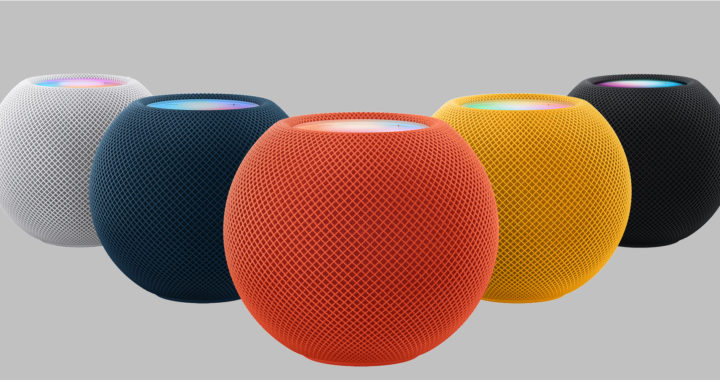The introduction of the HomePod Mini in November 2020 marked the further expansion of Apple to the consumer audio market. This smart speaker has been positioned as a smaller and less expensive alternative to the first-generation Apple HomePod that is capable of providing decent sound quality and voice-powered virtual assistance.
However, considering the fact that there are other smart speakers in the market such as Google Nest and Amazon Alexa, on top of the first-generation and second-generation of the HomePod, one may wonder if choosing the Mini would be a logical purchasing decision. This review article highlights the pros and cons of owning a HomePod Mini.
Pros of the HomePod Mini: Reasons Why You Should Buy
The Apple HomePod Mini is an entry-level smart speaker. It is not as advanced as the HomePod or other top-tier smart speakers in terms of sound quality and assistive capabilities.
It is still a capable device with notable features and functionalities. It works well within the entire Apple product ecosystem. Owners and users of Apple products including the iPhone might find this a good reason to purchase one.
The device is also user-friendly. It adheres to the straightforward design principle of Apple that prioritizes user experience over needless gimmicks.
Its connectivity features include Wi-Fi 802.11n with MIMO, Bluetooth 5, mesh networking via Thread, and the Apple U1 ultra-wideband technology. Built-in sensors include an accelerometer, humidity and temperature sensors, and sound recognition with 4 microphones.
Below are the specific reasons why you should buy this smart speaker from Apple:
• Omnidirectional Speaker: The device is an omnidirectional speaker that can fire sound in a 360-degree field thanks to its 1 full-range driver and 2 passive radiators. It also produces a loud, detailed, and well-balanced sound despite its size. The maximum volume is enough to fill a medium-sized room.
• Ease of Setting Up and Use: Another notable selling point of the HomePod Mini is its straightforward user experience. The setup process takes only a few moments. It can be controlled with voice commands using Siri.
• Smart Home Control: Remember that it is a smart speaker. This means that it can be integrated into a smart home system and control other smart devices through Siri voice commands. A user can command Siri to turn on or off the lights or adjust the temperature on a compatible thermostat. It can also act as a home hub that enables a user to control his or her smart home system using an iPhone or an iPad.
• Multiple HomePod Use: The device has built-in support for Apple AirPlay 2. This allows streaming audio to multiple HomePod speakers or other compatible speakers at the same time. It also has an intercom feature that allows a user to broadcast a message to other HomePod speakers within a house.
• Compact and Solid Built: It is small and lightweight. Moving it around would not be a problem. The overall look fits well in a room. It also has a solid construction and can withstand knocks and falls despite its small size.
Cons of the HomePod Mini: Reasons Why You Should Not Buy
Remember that the Apple HomePod Mini is an entry-level smart speaker. It produces good sound quality but it cannot compare with smart speakers such as the second-gen HomePod and other high-end audio devices.
There is also an issue with being locked inside the Apple product ecosystem. It does not work well with other devices or smart systems.
Siri has limited voice assistant features. It is not as sophisticated as Google Assistant or other virtual assistants that use advanced artificial intelligence tech for better natural language processing and machine learning.
Below are the specific reasons why you should not buy this smart speaker from Apple:
• Notable Compatibility Issues: Apple devices are notorious for being incompatible with other non-Apple devices. This smart speaker is no different. It works best with other Apple devices such as the iPhone and it might not be the best choice when using other devices such as an Android smartphone.
• Average Sound Quality: The sound quality is decent but it is not the best. The volume cannot fill a big room or is inadequate when used in an open space. It does not produce the same sound quality as larger and more expensive speakers.
• Limited Capabilities of Siri: Siri can answer basic questions and perform simple tasks such as controlling other smart devices. However, considering advanced conversational AI applications, its capabilities are too simple.
• Meager Multi-Language Support: It is also important to note that Siri only supports a limited number of languages. Its voice recognition capabilities are not as polished. This is a notable disadvantage of the HomePod Mini because it renders it almost unusable to people who do not speak English or have heavy accents.
• Limited Music Streaming: The device works well with Apple Music but it has some problems streaming music or audio from other music streaming services. It does not integrate well with Spotify, Amazon Music, and YouTube Music.
Verdict: Reasons Why You Should or Should Not Buy the HomePod Mini
Purchasing a HomePod Mini is a logical decision for those who own an iPhone or an iPad. It is a good choice for those whose homes or rooms are populated by Apple devices. It works well with Apple Music. However, those who do not own an iPhone or an iPad, or those who are Android users, are better off purchasing another smart speaker.





